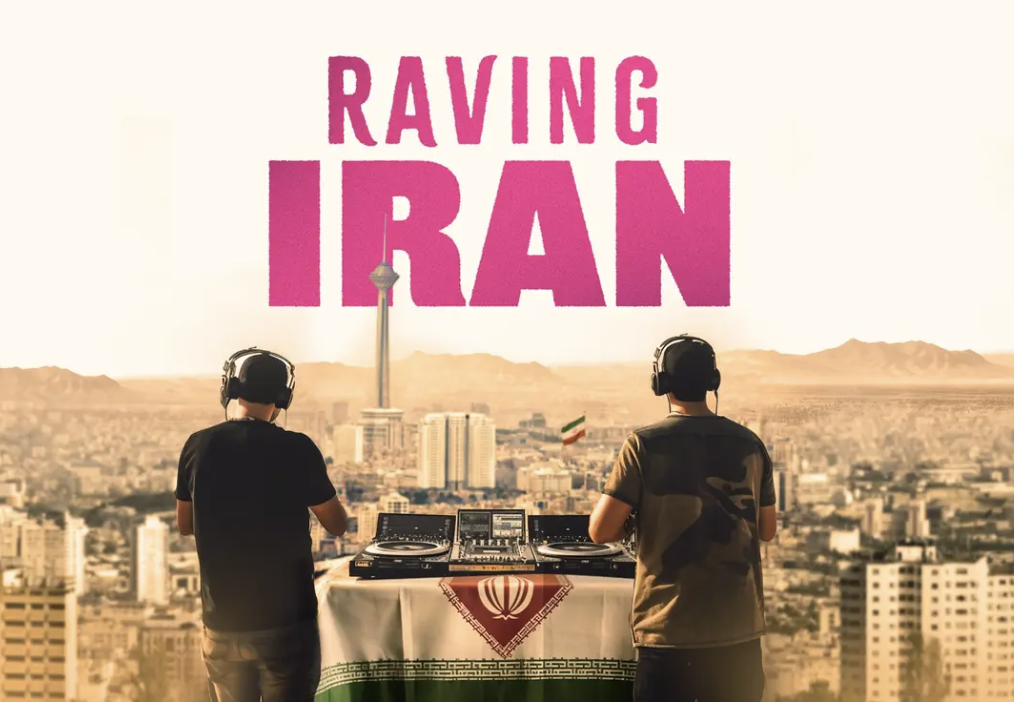“Raving Iran” is about two Iranian DJs trying to navigate the complexities of pursuing their passion for electronic music in a society that presents numerous obstacles. Accordingly, the documentary, directed by Susanne Regina Meures takes viewers on a journey through the bureaucratic hurdles, cultural restrictions, and personal sacrifices that the protagonists endure to share their music in and beyond Iran.
The film’s strengths lie in its intimate portrayal of the two DJs, capturing their determination and resilience in the face of adversity. The camera (mostly that of a cell phone) follows them through various stages of their struggle, from the intricacies of printing album covers to the daunting task of organizing live concerts in a country where electronic music is forbidden. The portrayal of the Ministry of Culture’s restrictive policies, including limitations on Western influences in posters and the prohibition of women in musical groups, sheds light on the cultural challenges that artists face.
The narrative is constructed in a way that emphasizes the stark contrast between the European and Iranian settings. While bureaucratic obstacles in Europe may mean the end of a party, the film highlights the extreme measures taken in Iran, such as the confiscation of musical equipment and the imprisonment of attendees. However, this construction seems to be the imposition of the director’s vision as if it intentionally overshadows some realities while highlighting others in unnatural ways, mostly by appealing to stereotypes and oversimplifications. These points pose problems regarding Raving Iran’s position as a documentary; and create the feeling of watching a fiction movie, which would suit the style of Raving Iran better.
